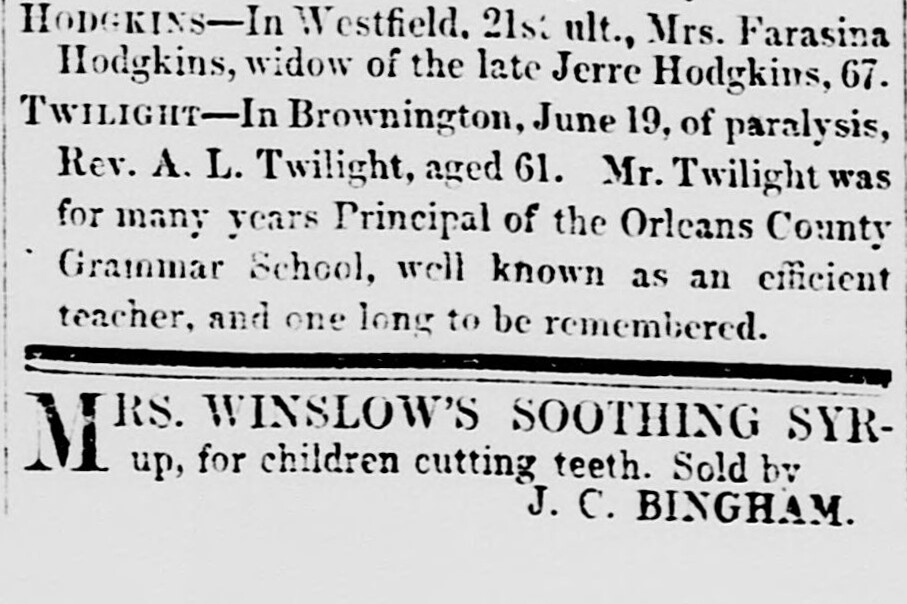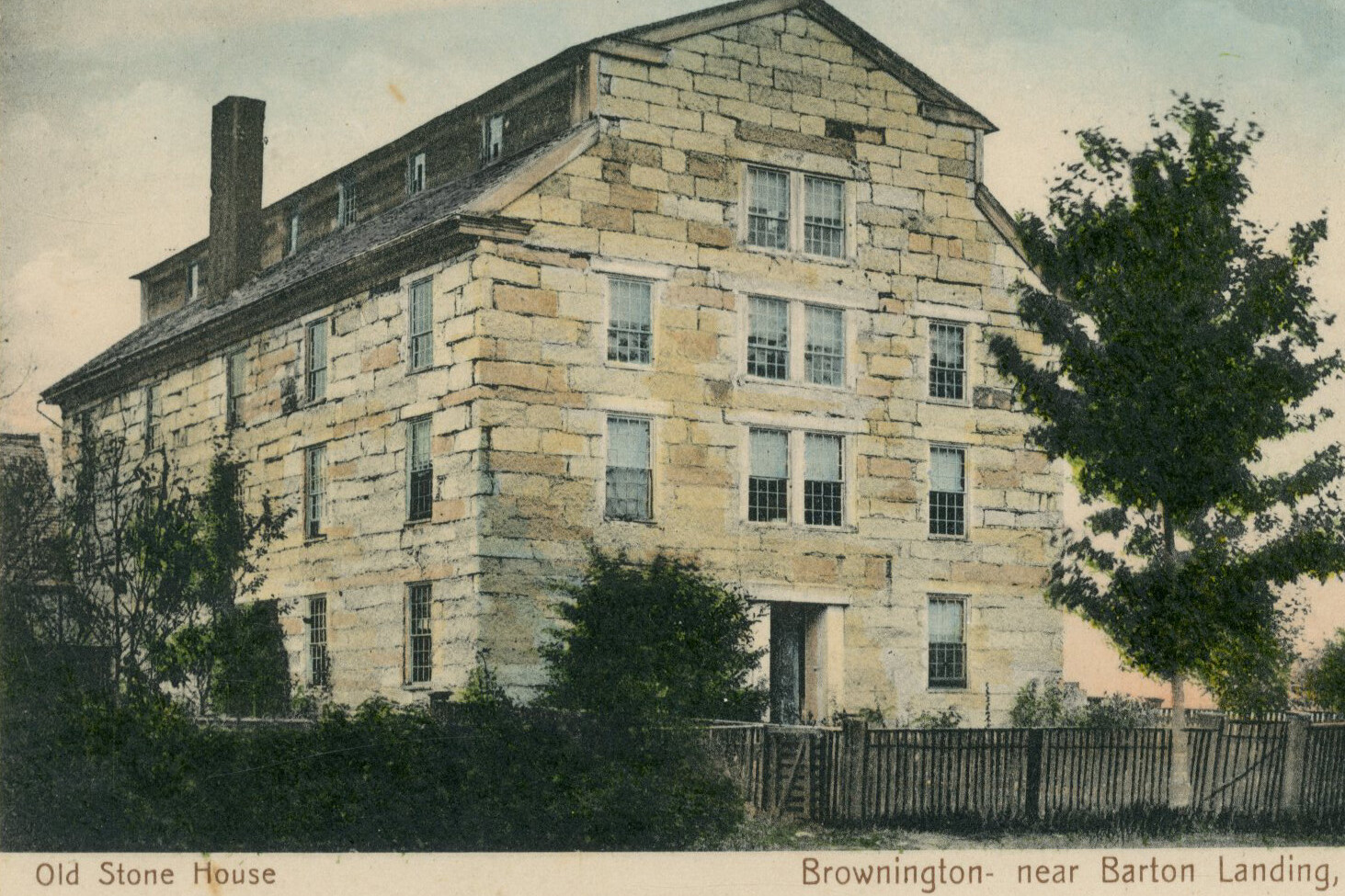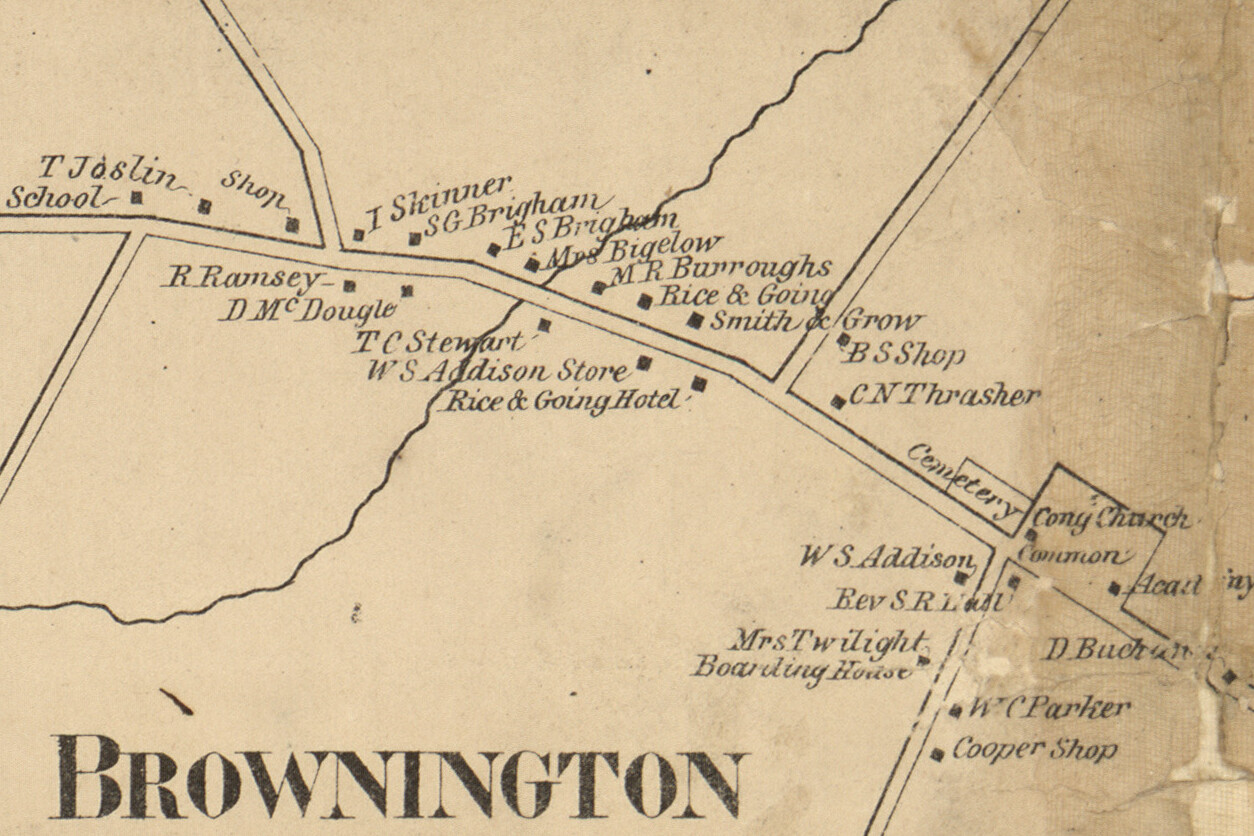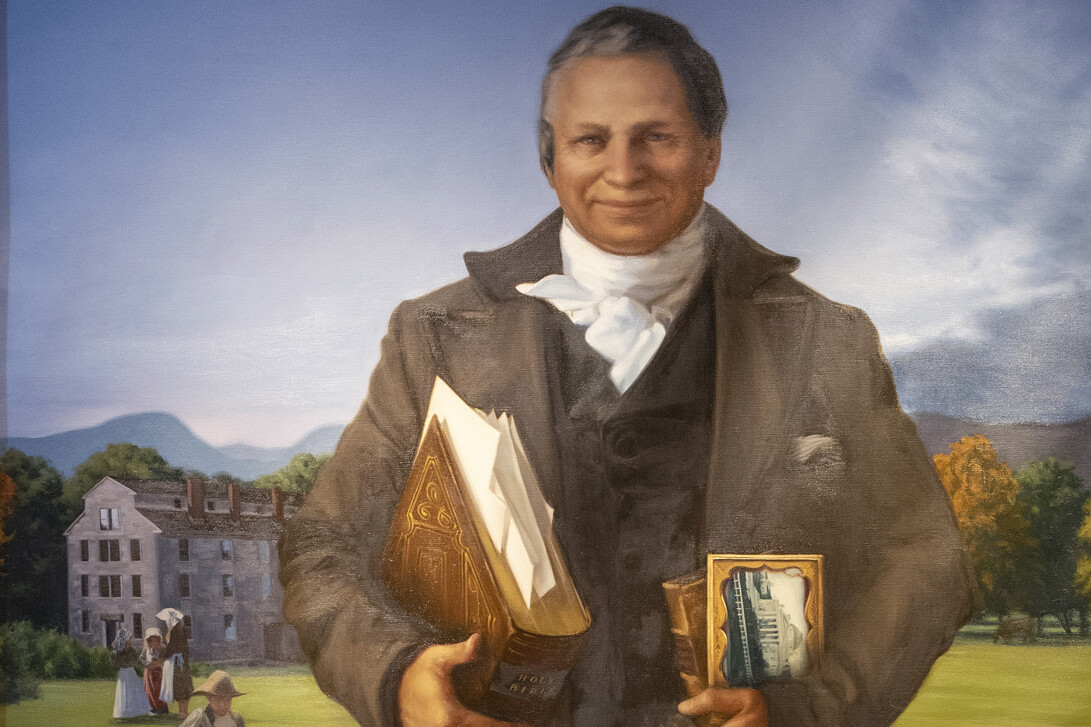Alexander Twilight
How should Alexander Twilight be remembered?
When Alexander Twilight died in 1857, a newspaper described him as “an efficient(able to produce good results without wasting time, materials, or effort) teacher, and one long to be remembered.” He is still remembered today. But now he is famous for different reasons than the one listed in his obituary(a notice of a person’s death, usually including information about their life).
Alexander Twilight was born in Orange County, Vermont, in 1795. He taught thousands of students at five schools. He was principal of the Orleans County Grammar School in Brownington from 1829 to 1847. The grammar school was like a high school with classes in history, science, math, and languages. Twilight was also a preacher(a person who gives sermons and speaks about the Bible) and taught students about religion. His students thought he was a good teacher.
Twilight built a large, stone building called Athenian Hall. Many of his students lived in this dormitory(a building with many bedrooms, often at a school). In 1847, Twilight and his wife, Mercy, moved away to Canada. Without him there as a teacher, fewer students attended the school in Brownington. He returned to the school in 1852. It closed for good a few years after he died.
Today Alexander Twilight is known as an excellent teacher. He is also famous for being the first Black man to graduate from college in the United States. And he is remembered as the first Black man to serve in the Vermont legislature(the branch of government that makes laws). Now he is the first person with African ancestors(family members who came before, like parents, grandparents, great-grandparents and more) to have a portrait(a picture of a person or group of people) hanging in the Vermont State House.
A history book written in 1877 has a long entry about Alexander Twilight. The article talks about his graduation from Middlebury College in 1823. It describes Twilight’s time in the state legislature, after male voters from Brownington elected him in 1836. At the State House, Twilight voted to protect the funding(money for a certain purpose) for his school. But the article does not say that he was the first Black Vermonter to graduate from an American college or to serve in a state legislature.
In the 1800s, people might have been racist if they thought Alexander Twilight was a Black man. Not long after Twilight studied at Middlebury College, the school refused to admit Andrew Harris because he was Black. Almost 150 years after Twilight graduated, the college started to celebrate him as its first Black graduate.
Historical records show that Twilight’s father, Ichabod, was a biracial man of African ancestry(the people who make up a person’s background, like parents, grandparents, great-grandparents and more). Historians do not know much about his mother, Mary. In 1800, the Twilight family lived in Corinth, Vermont. That year, the census(a count of all the people living in a place) records listed the Twilights as free people of color, neither white nor enslaved. But in 1810, the census listed the family as White.
A newspaper article from 1896 described Alexander Twilight as “swarthy.” This suggests that his skin was dark or tan. Historians today identify Alexander Twilight as a biracial(a member of two races) man. It is not clear how Twilight thought about his identity.
How do you think Alexander Twilight should be remembered? For his achievements? For breaking barriers and being “a first”? Or for all these reasons?
Thinking About History
Historians ask questions to think deeply about history.
The Vermont Gazetteer, a book from 1877, includes a short biography of Alexander Twilight. The article calls Twilight “one of the most remarkable men that Orleans County has ever had.” What makes someone a remarkable person? Who do you think is a remarkable person?
Learn More
Follow the links below to explore related topics.
See photographs of Alexander and Mercy Twilight on the Old Stone House Museum website
Take a virtual tour of the Old Stone House Museum
Watch the video Alexander Twilight from This Place in History
Watch the video Andrew Harris from This Place in History
Read the article Alexander Twilight and the Old Stone House from Historic Roots Magazine
Listen to the podcast Princes and Free Men from Before Your Time
Read the article No Busses, No Electricity, No School Lunch! from Green Mountaineer Magazine
Read the article Abby Hemenway’s Thirty-Year Legacy from Green Mountaineer Magazine
Copy and paste this citation to show where you did your research.
Vermont Historical Society. "Alexander Twilight." Vermont History Explorer. Accessed January 26, 2026. https://sitemaps.vermonthistoryexplorer.org/alexander-twilight



